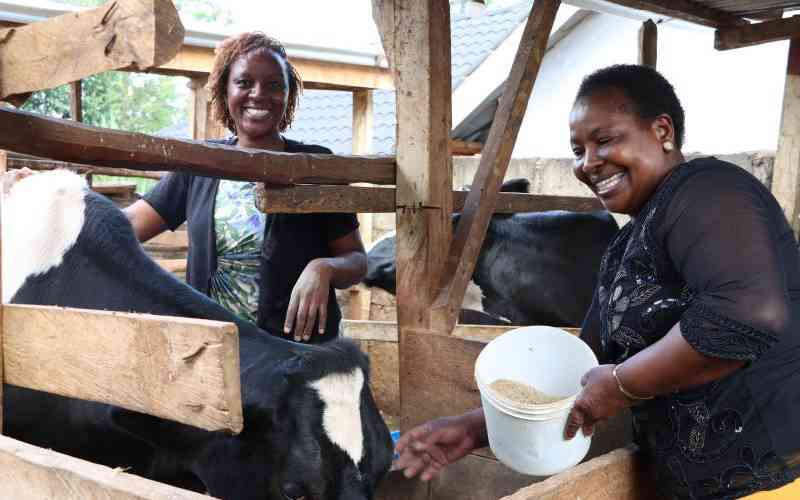×
The Standard e-Paper
Fearless, Trusted News

Following the collapse of Kenya Cooperative Creameries (KCC) in 1990s, a group of 35 small-scale milk producers in Kirinyaga (some with just one milking cow) formed a self-help group.
They called themselves Kirima Slopes Self-Help Group. "The idea was to look for a market for our milk," says Samuel Wachira, the group's treasurer today.